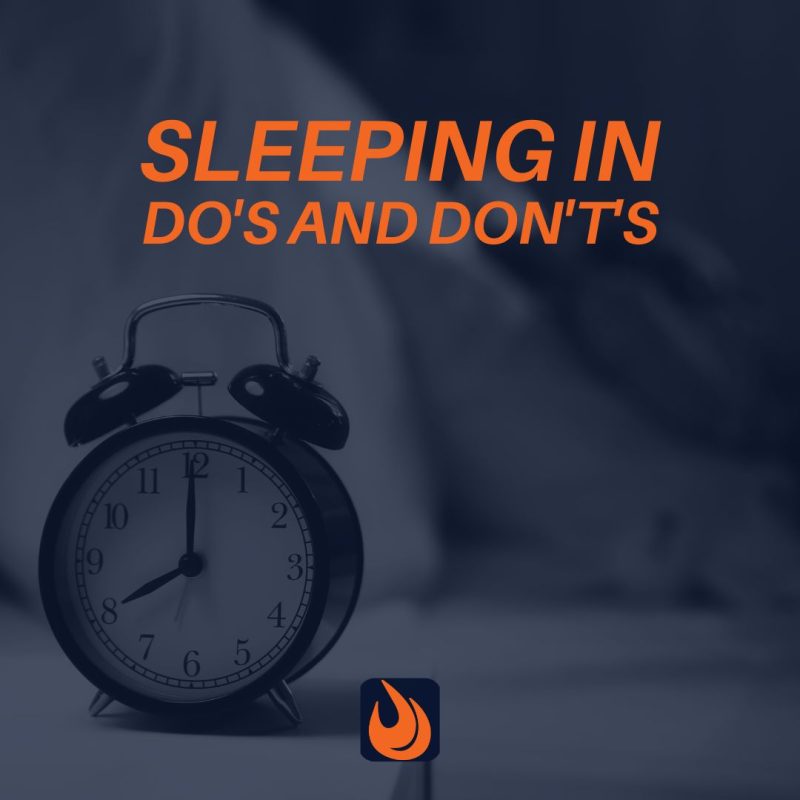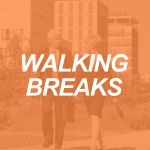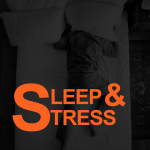
Ah, sleeping in, the ultimate luxury. Laying in bed, no alarm, getting as much rest as the body wants. Nowhere to be. It’s the unspoken staple of vacations, time-off, and for many of our personal training clients, weekends. Yet, sleeping in too long can lead to feelings of grogginess and trouble going to bed the following night – which often creates a cycle of sleep loss and catching up.
There are benefits to sleeping in as well as consequences.
Sleeping in on a Sunday when one has to wake up early Monday induces a daylight savings time change every week, instead of just once a year.
Personal trainers and fitness clients often wake up early during the week to get to the gym — an incredibly healthy habit to instill–unless it comes at the cost of consistent sleep. Finding out what your clients (and considering your own) habits are in this arena can lead them to positive health change. Some people might work a typical 9-5 on weekdays, but others may have a different schedule.
Is Sleeping In a Problem?
Ask your clients:
What time do you wake up each day of the week?
Does it ever change, on the weekend?
Consistency is key with sleep (and getting enough volume). Shifting the body’s internal clock by an hour or more every week and then back again has a cascade of physiological effects, because there are 3-trillion cells in the human body and each one has a clock. When bedtime and rising time change, so do digestion, heart rate, liver function, etc. Sleep timing matters more than many people realize. We were designed to synch with the sun’s rhythm, but artificial lighting and screens have altered that.
When to Sleep In
When traveling time zones. Sleeping in can help get the body into a different time zone, mostly with westward travel.
During illness. When the body is coping with a virus or infection it is important to let it sleep as much as possible.
After extreme sleep disruption. If a person traveled several time zones and is returning home, just gave birth, or had some sort of tragedy in their life, sleeping in for a few days or a week to catch up might be beneficial. But it is then imperative to get back on a routine for hormones like Melatonin.
With shift work. Ideally, a person working night shifts should get onto a sleep schedule that remains consistent with work, but if that’s not possible due to family or life demands, it may be better to just sleep when they can.
If it’s impossible to sleep enough during the week. Folks face the economic reality of working multiple jobs to support themselves and/or a family need to sleep when they can and do their best. This is a specific scenario and does not apply to people who are just staying up too late and could be in bed earlier by implementing sleep hygiene strategies.
When Not to Sleep In
When it’s chronic and a crutch. There are quite a few situations which sleeping in is beneficial for a short-term solution, but otherwise it is detrimental in the long-term. If a person is not allowing enough time for sleep during the week and sleeping late on weekends because of tiredness, this causes disruption in all of the body systems (immune, endocrine, nervous, digestive, cardiovascular, etc.) and contributes to the risk for illness.
Sleeping in on weekends, for example, enables a person to stay up too late on weeknights and/or wake up too early without enough sleep volume. There is a time and a place for sleeping in, but when it’s a cover for chronic sleep loss it is problematic. The best way to gauge how sleeping in is affecting a person is by keeping a sleep log for a few weeks. If someone is tired during the day and feeling awake at night, the circadian rhythm is being disrupted—sleeping in is a likely suspect.






